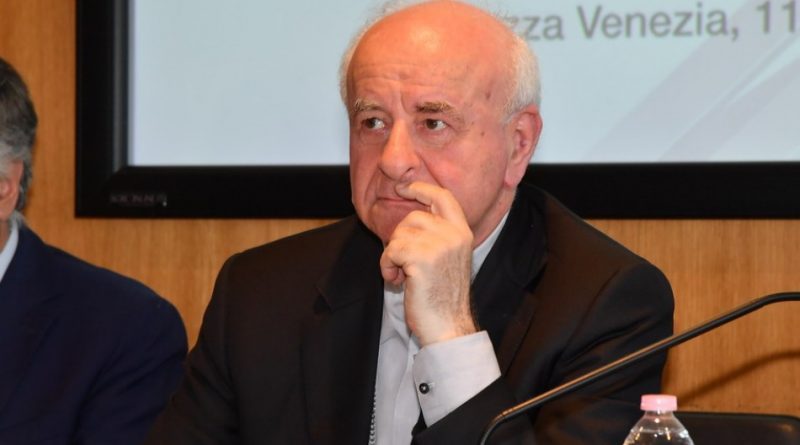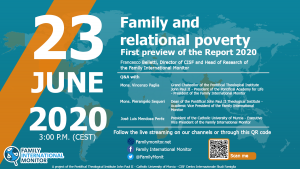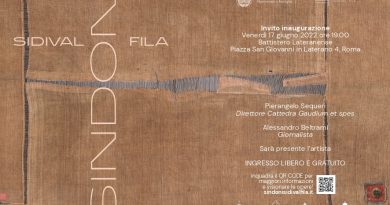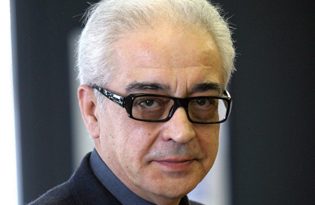Presentation of the first preview of the Report 2020 on Family and relational poverty
by Vincenzo Paglia
Welcome to this first presentation of the preview of the results of the research that the Family International Monitor has been conducting for over a year on the topic “Family and of relational poverty”.
I greet and thank Mgr. Pierangelo Sequeri, president of the Pontifical John Paul II Institute, José Luis Mendoza, President of the Catholic University of Murcia, Dr. Francesco Belletti, director of the International Centre for Family Studies in Milan, the representatives of the universities that have worked intensely on this scientific research, the journalists, and all those who are connected via streaming.
In December 2018, the Pontifical John Paul II Institute, together with the Catholic University of Murcia and the Cisf from Milan, following the inspiration of the Holy Father who invited us to broaden and integrate our gaze on families, decided to found this International Monitor to provide us with a tool for continuous scientific research on the specific reality that families live in different parts of the world. As we all know, families play a decisive role for society. We can say that they literally keep it alive. Families –in all their different articulations– are the foundation of every society, and from their state of health we can deduce the degree of economic, social and existential well-being and prosperity in society. Politics does not always pay attention to the extraordinary resource that the family represents for society. With this Monitor –through the tools of social research– we would like to highlight some of its aspects so that they can be the object of a more careful consideration.
I would like to stress the fact that this meeting takes place while our Institute presents its new curriculum, which I had the pleasure to present to the Holy Father just yesterday. I would also like to emphasise the fact that from this new theoretical approach, the essential role of the family emerges as one of the achievements of that alliance between man and woman that, in creation, receives from God the task of protecting the creation and being responsible for the generations. Therefore, in the richness of the constellation of its relationships and affections, we recognise the family as the engine of history and we claim this vocation to be recognised to it. To sum up, we are convinced that if things go well between men and women, our societies will also go well. And, of course, the opposite is also true. So, dear friends, the Monitor is defined within this horizon.
The experience of the pandemic that has suddenly and dramatically overwhelmed our personal lives, and also the lives of our societies, our economies, our policies, has once again shown the evidence of this truth. The fact of observing the families, their histories, vulnerabilities and opportunities helps us to know the quality of a people’s civilisation, the stability and the strength of a country, and at the same time, it offers us some light to build a more humane future for all.
We have chosen to inaugurate our academic work starting from the topic “Family and of relational poverty”, and next year we will focus on the relationship between “Family and economic poverty”. The decision to begin our investigation by deepening the relational dimension has not been accidental, but rather reflects the anthropological issue that the first patrimony, the first indispensable resource of the human being without which every persons risks getting lost and losing his or her identity, is constituted by the relations that find in the family their first materialisation.
We wanted to ask ourselves: how much and to what extent in Benin, Lebanon, South Africa, Chile, Brazil, Qatar, India, Italy and Spain the lack or prosperity of the relational dimension affects the lives and histories of individual families and the very “functioning” of the societies they belong to, and to what extent do development and economic growth depend on it too?
I am convinced that the fact of trying to answer these questions in a rigorously scientific way, by activating a virtuous synergy between universities and research centres all over the world, gives us the possibility to listen and read reality as it is, to try to interpret it, to hope to direct it with wisdom and conscience. Thank you.





